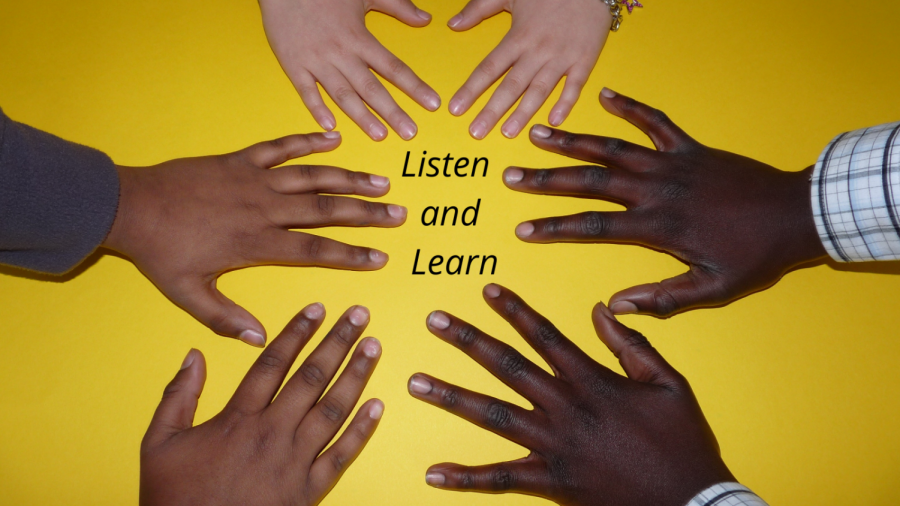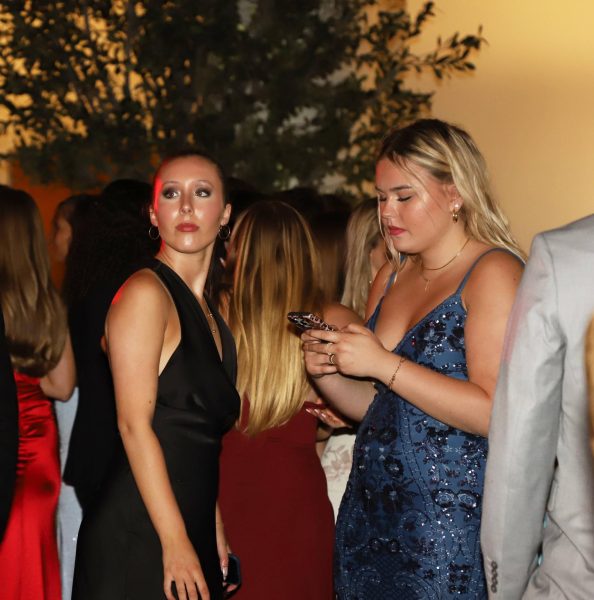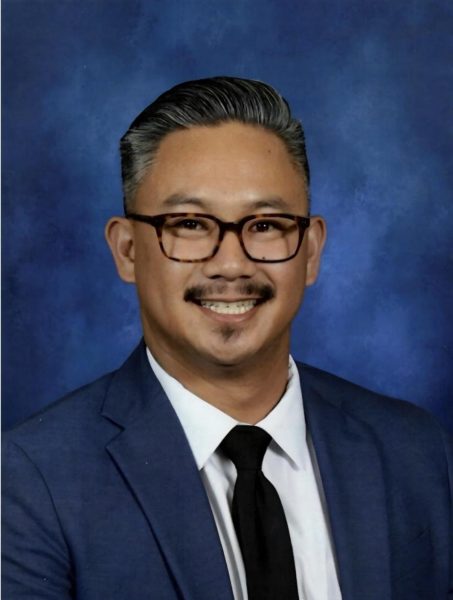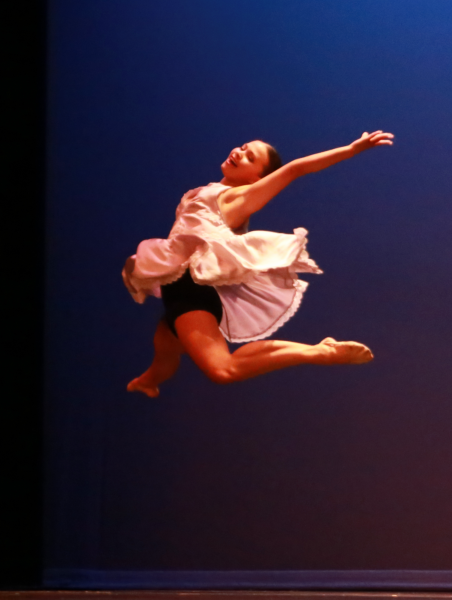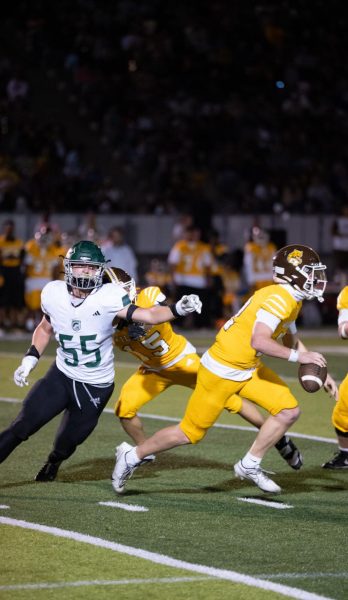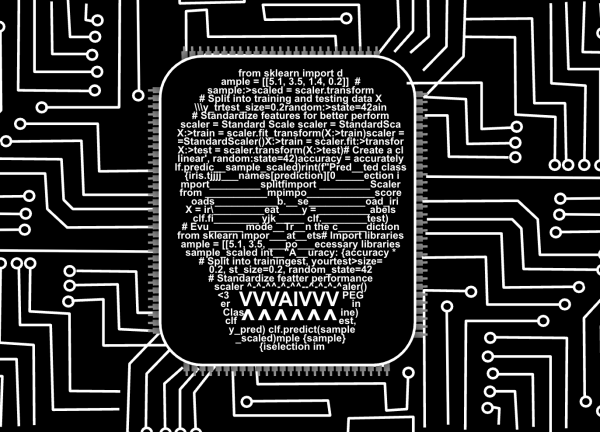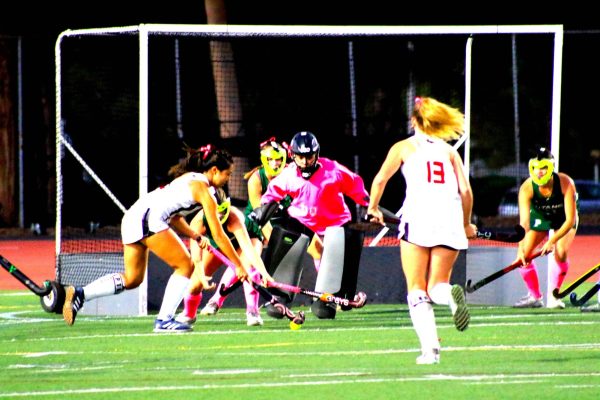Listen and Learn
On a dark evening, families in the Poway community waited nervously. After a summer that reignited conversations on race and police brutality, the time has come for the torch to be passed on to the Poway Community. Is there a specific example of an anecdote shared at the meeting that you could start with?
The Community Conversation on Race held Oct. 8 for Poway High and its feeder schools was an interactive Zoom that allowed students, parents/guardians, school administrative staff, and members of the community to listen and to learn about the racism that has been happening in Poway Unified Schools.
The Community Conversation on Race had its first run in Rancho Bernardo where it was widely received. Many attendees walked away from it having learned of the ongoing racism in their school district. With the success in Rancho Bernardo, the conversation moved to Poway.
PUSD (Poway Unified School District) signed a resolution in June to make the school district explicitly anti-racist and welcoming space for BIPOC (Black, Indigenous, People of Color) students and families. This Zoom meeting was to aid in the resolution by making a safe space for minority families to talk about their struggles with PUSD.
The centerpiece of the meeting was the parents/guardians as they made up most of the demographic of the Zoom attendees. Also, the information for the RSVP was mostly sent out to the parents. Before opening it up to a forum, a message to promote listening and learn was sent out by the organizers of the event.
The attendees were reminded that this meeting was not the end all be all. The meeting was hosted by Martha Parham, Carol Osborn and Dr. Darlene Willis. Who? Who hosted the Poway meeting? wanted people willing to share, and not to expect closure. Racism doesn’t get a sense of closure for those affected by it, while others can walk away from it, many BIPOC are left to deal with racism on a daily basis.
Attendees were also reminded that many of the stories that will be shared are going to be hard to hear. It is oftentimes difficult for members of a community to hear stories of discrimination and racism and it is even harder to be empathetic to those who experience it.
Many of the topics included the use of the N-word, the complacency of the PUSD staff–the lack of diversity that leads to many racial issues– and historical education. The parents felt that the school administration did not pay attention to these problems, ignoring it and anybody who complained, which only perpetuated the behavior and normalized the usage of the N-word.
One parent, Dawana Brown remarks, “I definitely would address it [N-word] and educate the individual(s), so they must understand the severity, pain, and history associated with that word.”
Many of the parents agreed that the problem comes from home. One of the Poway High Students who attended, Vivian Rojas Sanchez, agrees, “I think so, I mean how else do little kids learn how to use racial slurs, it’s from their home life.” The parents concluded that kids are not entirely racist; they tend to be influenced by their parents’ beliefs.
Senior Emily Blysma relates, “ As a white student in PUSD, I do not experience the discrimination our BIPOC students do, and to hear everything our students are going through on a daily basis was truly heartbreaking.” Blysma is a student activist, a member of SFEE (Students For Education Equity), and is very active in her community championing for BLM (Black Lives Matter). Blysma went on to say that it was a, “really valuable event that started an important dialogue in the community.”
Once the experiences were shared, there was this unifying feeling of uncomfortableness. Everyone knew that they would leave the meeting uncomfortable. But, “sometimes people feel uncomfortable and that’s good,” Dr. Darlene V. Willis of CPA (Concerned Parents Alliance).
Principal Nash of Poway High School agreed with the sentiment, commenting later, “Many experiences were shared that were hard for me to hear.” But, Principal Nash believes that one way for an effective conversation is for participants to leave behind their defensiveness when others are “identifying ways to improve”. On the issue of the N-Word, Principal Nash solemnly said, “The use of terms that are emotionally gut-wrenching regularly by students was incredibly disappointing to hear.”
The Community Conversations on Race will continue to happen. The next dates for the extended Poway High school community will be on Tuesday, February 2nd, and May 4th, 2021. The 2021 locations will be determined based on health conditions, but the organizers hope they will be able to meet in person.
